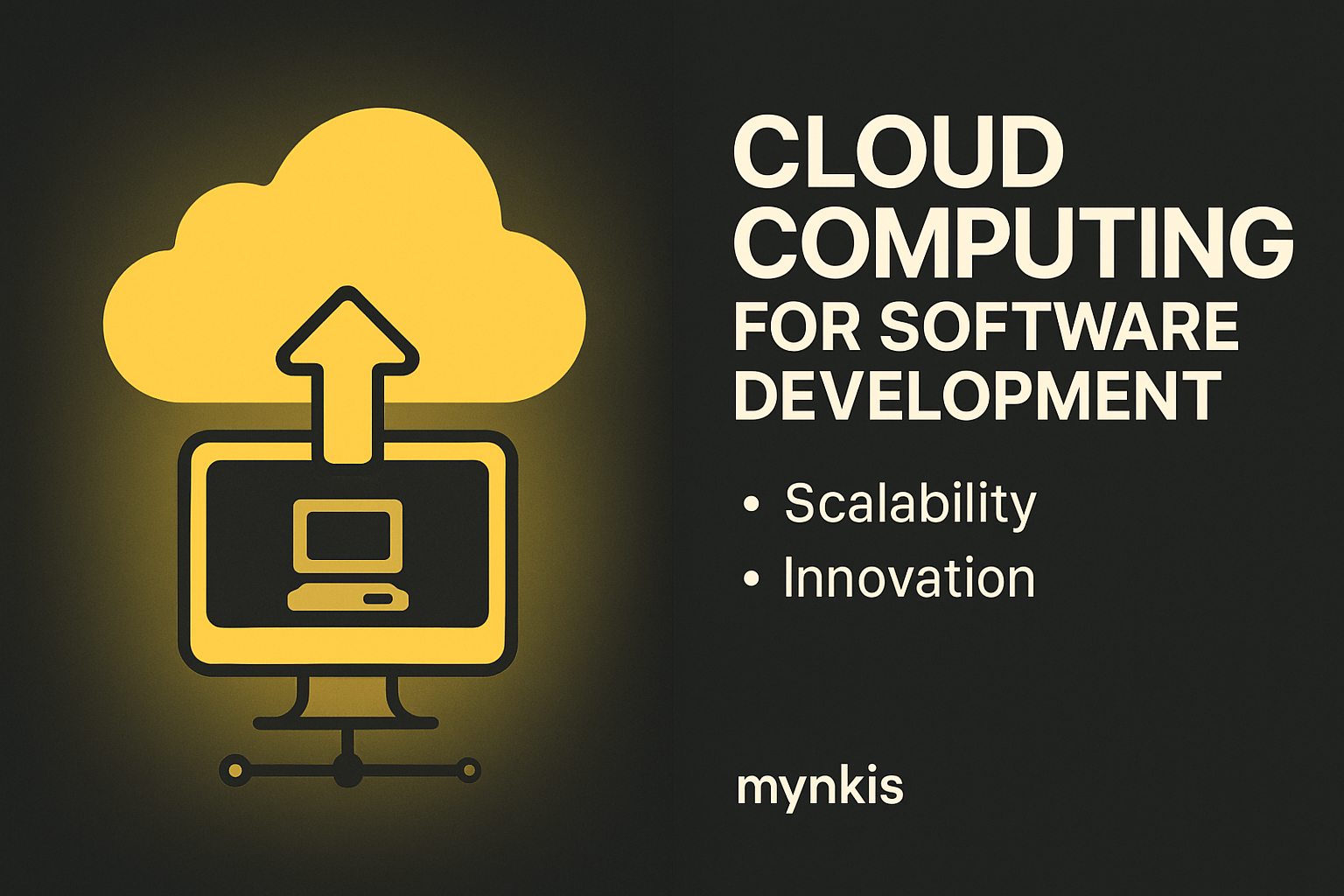Schedule a Demo
In my journey working with diverse industries, from burgeoning startups to established enterprises, I've witnessed firsthand how cloud computing revolutionizes software development. It's not just about moving data online; it's about transforming the entire development ecosystem. Imagine scaling your software effortlessly during peak times, or instantly deploying a new feature globally without a hitch. This is the reality that cloud computing brings to the table.
One of the most compelling aspects of cloud computing in software development is scalability. As a developer, you no longer need to worry about purchasing and managing servers physically. With the cloud, resources can scale up or down according to your application's needs. This not only saves cost but also significantly reduces time-to-market for new features and updates. In one case I worked on, a client's traffic doubled unexpectedly, but with cloud services, we automatically adjusted the resources to handle the load without any downtime.
The cloud facilitates real-time collaboration among developers, which is crucial for today's distributed teams. Tools and platforms hosted on the cloud allow developers to work together seamlessly, regardless of their geographic location. In my experience, this has shaved weeks off development cycles. Using cloud-based version control systems, developers can push changes to the code repository and see them reflected instantaneously. It's not uncommon for clients to report a drastic reduction in their product development timelines once they switch to cloud environments.
When it comes to budgets, the cloud offers unparalleled flexibility. You pay only for the resources you use, making it a cost-effective solution, especially for startups and small businesses. For a client in the e-commerce space, transitioning to a cloud-based system halved their server costs while allowing them to experiment with new features without significant upfront investments. This model levels the playing field, enabling businesses of all sizes to compete based on innovation rather than infrastructure investment.
Security is paramount in software development, and the cloud doesn't fall short. Cloud providers invest heavily in security measures, often more robust than what individual organizations can achieve on their own. Encryptions, firewalls, and regular security audits are standard. Additionally, data backup and disaster recovery mechanisms are streamlined, ensuring business continuity. I remember a scenario where a client faced a severe data loss; thanks to their cloud infrastructure, we restored everything with minimal disruption.
Cloud computing isn't just about traditional software development; it paves the way for integrating advanced technologies like artificial intelligence, machine learning, and IoT. Accessing these high-powered computational tools without needing to own the hardware ourselves is transformative. For instance, a medical diagnostics software project I worked on used cloud AI services to improve the accuracy of image analysis without the prohibitive cost of owning such technology.
The global nature of cloud services eliminates many of the logistical challenges associated with deploying software across different regions. If you're serving a global audience, you can choose where to host your applications to minimize latency for users in different geographical locations. A fintech client leveraged this, deploying their app across various continents to provide seamless user experiences to their international customers.
It's worth mentioning that cloud computing can have a positive environmental impact. As per the research published by Greenpeace, leveraging cloud infrastructure can be more energy-efficient compared to traditional on-premise setups. By sharing computing resources, less overall hardware is needed, reducing the carbon footprint of tech operations.
While cloud computing offers numerous benefits, it's not without challenges. The security aspect, though generally robust, requires vigilant oversight and compliance with evolving regulations. Additionally, dependency on internet connectivity can pose risks in scenarios where stable connections are a luxury. I've seen clients struggle with these issues, particularly those operating in regions with less reliable internet services. Moreover, it's essential to strategically select a cloud service provider whose values and commitments align with your business's long-term goals.
Peering into the future, the role of cloud computing in software development is set to expand further. The rise of edge computing, server-less architectures, and the continued evolution of AI and machine learning will demand even more from cloud infrastructures. For businesses willing to embrace these technologies, the potential for innovation and efficiency gains is extraordinary. As an example, I'm currently involved in a project exploring server-less computing for a logistics client, aiming to make their systems even more responsive and scalable.
If your practice is considering a move to cloud computing for your software development needs, start with a comprehensive assessment of your current infrastructure and needs. Consider running a pilot project to gauge the effectiveness of specific cloud services before fully committing. Engage with cloud experts to ensure your chosen platforms align with your practice's goals. I always recommend beginning with a clear strategy to avoid common pitfalls like over-customization without sufficient justification.
Embracing cloud computing in software development is more than just a technological shift; it's a paradigm change that can elevate every aspect of how your business creates and delivers software solutions. From scalability and collaboration to cost savings and global reach, the cloud offers a multitude of advantages that can enhance your practice's competitiveness and innovation capacity. As you embark on this journey, be mindful of the challenges but confident in the transformative potential cloud computing holds for your software development endeavors.
